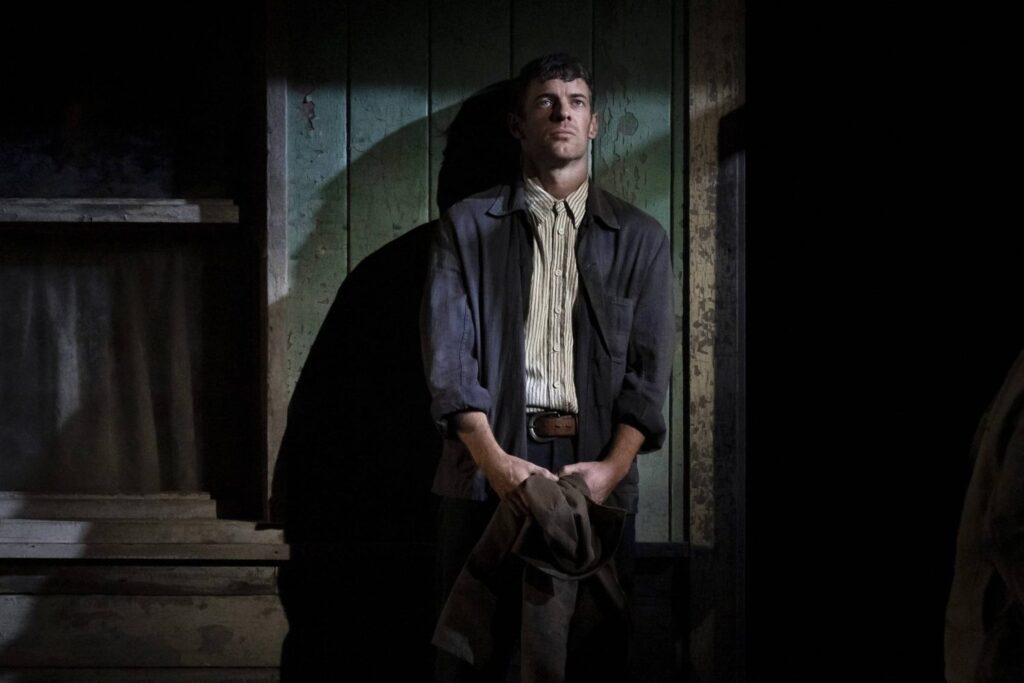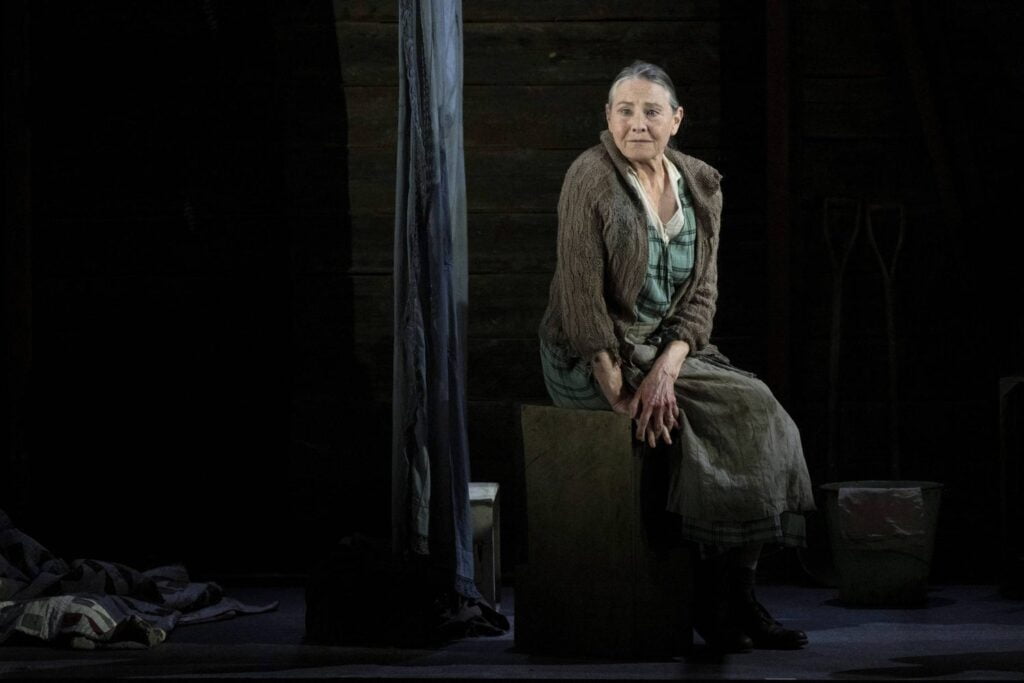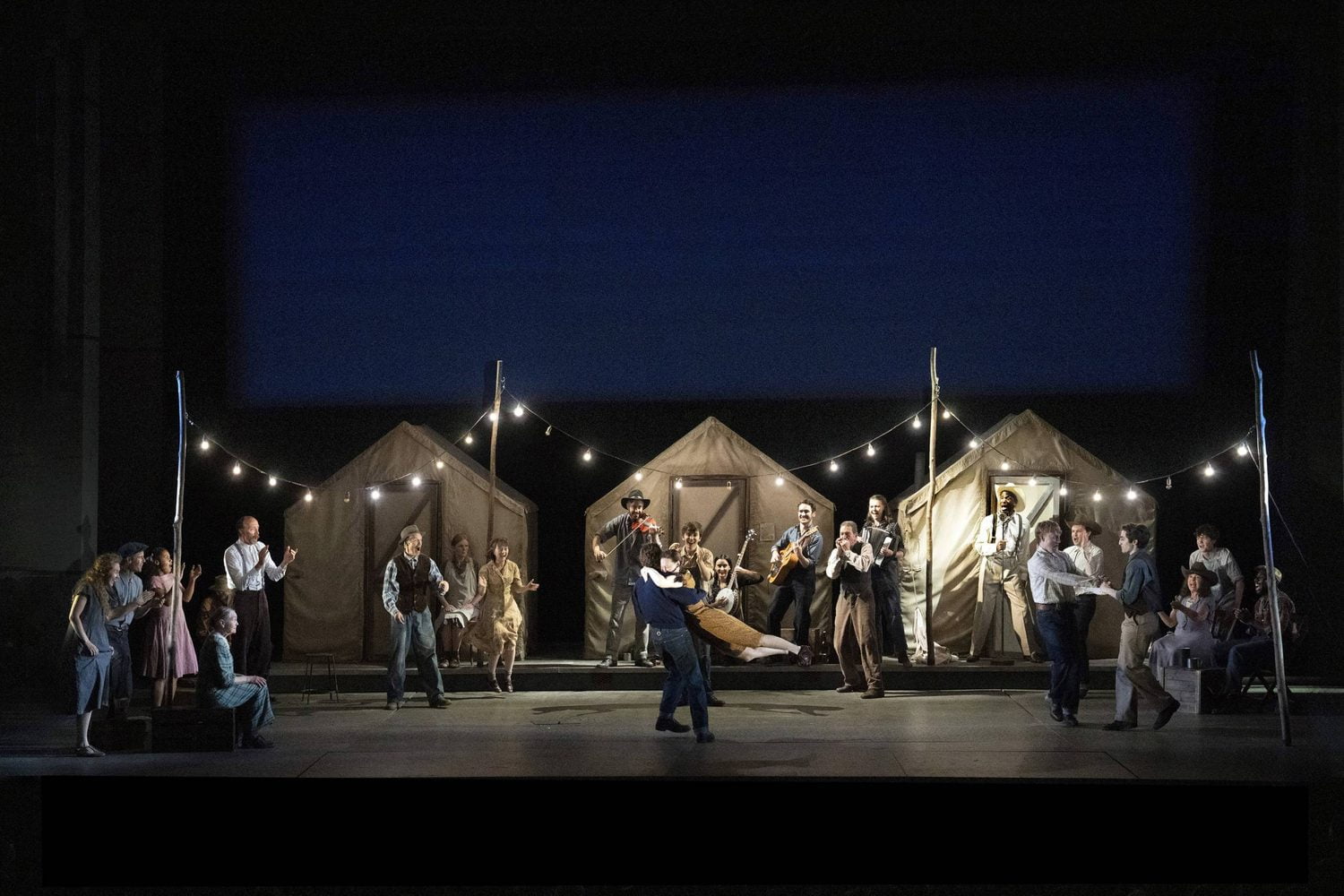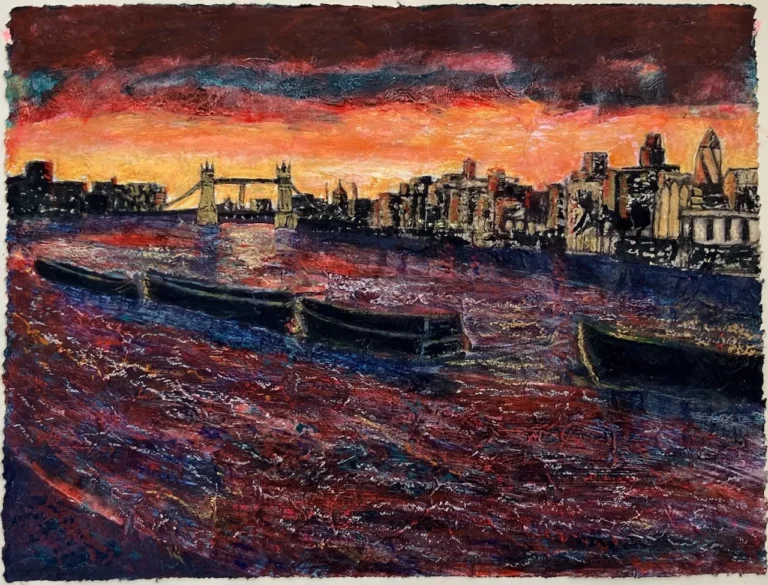Dreams Dashed in Laboured Drama
One of America’s greatest and most popular novelists, John Steinbeck has had many of his works adapted for film, TV and stage. Most will be familiar with Of Mice and Men, which has been a mainstay of English syllabuses across the country, but it is his novel The Grapes of Wrath that won him a Pulitzer Prize for fiction in 1940. This summer, director Carrie Cracknell stages their take on Frank Galati’s Tony award-winning adaptation, writes Christopher Peacock.
The Grapes of Wrath is a migrant tale. The Joad family from Oklahoma are heading to California during the depression after being evicted from their unprofitable land. Eldest son Tom, fresh out of prison on bail, returns home to find his family turfed off of their own land and destined to leave the Dust Bowl in search of work.
The travelling family unit expands and decreases with events on the road west and upon arrival the expectations of vast expanses of green land and plenty of work on the fields and orchards of California is soon dispelled. Their dreams are dashed as they find that the number of workers vastly outstrip the demand. This creates a race to the bottom as wages are suppressed and the tensions boil over between those finding themselves in tents in pop-up towns called ‘Hoovervilles’ and the law enforcement.


Cracknell’s production introduces some original country music from Maimuna Memon who, joined by a folk band consisting of fiddle, accordion and slide guitar, certainly enhanced the setting and emotional toil of not just the Joad family but all of those who have had to hit the road in search of work.
Performances from Cherry Jones as Ma Joad and Harry Treadaway as Tom are incredibly strong amongst a very talented cast. Amid such a vast array of characters no role has a great chance to stand out and no scene has a chance to gain depth as before you know it we are moving on again.
Alex Eales’ set is sparse and cold, the odd pieces used come and go with every passing scene. Pace is what this production lacks. With lots of short scenes stitched together, with musical interludes marking each juncture, the play feels laboured in getting to the heart of the drama.
Ninety years on from when it was written there is still relevance in Steinbeck’s work. People forced from their land, either from being persecuted or because their land is unworkable, has merely changed locations since 1930s’ America.
Lyttelton Theatre, National Theatre, South Bank, London SE1 9PX until 14th September. Times: 7pm, matinees 1pm. Admission: £20 – £89.
Booking: www.nationaltheatre.org.uk






